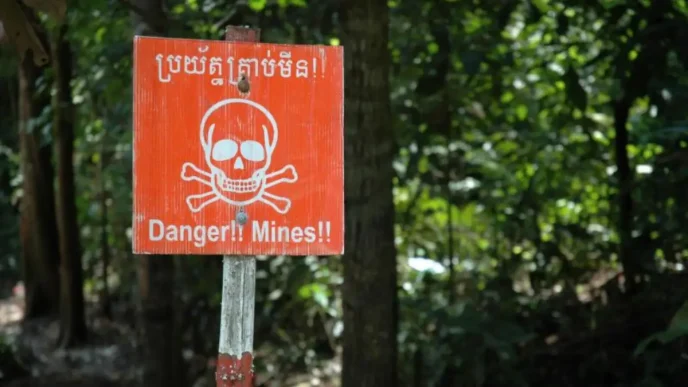Singapore is set to intensify its battle against the rising tide of vaping-related drug abuse by listing etomidate, a substance increasingly found in e-vaporizers, under the Misuse of Drugs Act (MDA). This move, announced by Health Minister Ong Ye Kung on July 20, 2025, signals a significant shift in the city-state’s approach to tackling the vaping crisis, equating the abuse and trafficking of etomidate-laced vapes—known as Kpods—with the handling of controlled drugs like nimetazepam, commonly referred to as Erimin-5.
A Growing Threat in Vaping Culture
The decision to reclassify etomidate under the MDA comes in response to alarming trends in Singapore’s vaping scene. Originally listed under the Poisons Act, etomidate—a medicinal anesthetic agent designed for intravenous use under strict clinical supervision—has been repurposed as a psychoactive substance inhaled through vapes. This misuse has led to severe health consequences, including spasms, breathing difficulties, seizures, and psychosis. More disturbingly, Health Minister Ong confirmed on July 20, 2025, that several deaths in Singapore, including traffic accidents and unnatural deaths, have been linked to etomidate abuse, with investigations ongoing.
Speaking on the sidelines of a community event in Sembawang, Mr. Ong revealed that one in three vapes seized during recent enforcement operations tested positive for etomidate. Of over 100 devices randomly tested, a third contained the substance, highlighting the scale of the problem. “But today, it is a delivery device for a range of substances, from nicotine to psychoactive substances such as etomidate, to hardcore drugs that are illegal under the MDA as well” he noted, emphasizing the evolution of vapes from nicotine delivery systems to vehicles for dangerous drugs.
Under the current Poisons Act, penalties for etomidate abuse are relatively light, with abusers facing only fines and sellers risking up to two years in jail. However, reclassification under the MDA will impose far stricter consequences, including mandatory supervision and potential commitment to drug rehabilitation centers for users, alongside harsher penalties for traffickers akin to those for other controlled substances. This interim measure, expected to be implemented in the coming weeks, is part of a broader strategy by the Ministry of Health and the Ministry of Home Affairs to curb what Mr. Ong described as a serious problem.
Health Risks and Societal Impact
Etomidate’s misuse through inhalation poses unique and severe risks. Designed as an anesthetic for injection under medical oversight, it was never intended to be inhaled directly into the lungs. When vaped, the substance can trigger immediate and life-threatening reactions. Beyond the physical toll, the societal impact of etomidate-laced vapes is profound, particularly among younger demographics. Mr. Ong pointed to a pervasive mindset among some young people, fueled by aggressive marketing from vape manufacturers, that portrays vaping as harmless and trendy. “It’s actually unconscionable” he remarked on July 20, 2025, underscoring the challenge of countering this dangerous perception.
The urgency of the situation is further compounded by reports linking Kpods to organized crime groups in Singapore. Local authorities have intensified crackdowns, while public healthcare institutions have been instructed to meticulously record all cases involving etomidate-laced vapes. This coordinated response reflects a whole-of-government effort to address what has become a public health and safety crisis. Current penalties for possessing, using, or buying vapes include a maximum fine of $2,000, while distributing, importing, or selling vapes and their components can result in up to six months in jail and fines of up to $10,000. For pods containing etomidate, possession or use could lead to imprisonment of up to two years and fines of up to $10,000 under existing laws, with even tougher measures expected under the MDA.
Public Awareness and Enforcement Measures
In tandem with legislative changes, Singapore is ramping up public awareness and enforcement initiatives. On July 20, 2025, the Health Sciences Authority (HSA) announced an expansion of its reporting hotline for vaping-related offenses. Previously operational only on weekdays from 9 a.m. to 5:30 p.m., the service will now be available seven days a week from 9 a.m. to 9 p.m., making it easier for the public to report violations. This move is intended to bolster enforcement efforts and encourage community vigilance against the vaping scourge.
Adding to the momentum, The Straits Times launched an anti-vaping campaign titled Vaping: The Invisible Crisis on July 13, 2025, aimed at raising awareness of the dangers posed by substances like etomidate. Mr. Ong praised the initiative during his remarks on July 20, noting its role in educating the public and urging agencies to intensify their actions. The campaign appears to have had an immediate impact, with several Telegram channels previously active in selling vapes reportedly becoming less visible since its launch.
Mr. Ong also issued a direct plea to users of etomidate-laced vapes, urging them to cease immediately. “I urge those who are consuming etomidate-laced vapes to give it up now, before the law catches up to you. It is very harmful, and the time to give up is now” he said on July 20, 2025. His words reflect a dual approach of enforcement and prevention, aiming to deter abuse before harsher penalties are fully enacted.
Broader Implications for Singapore’s Drug Policy
The reclassification of etomidate under the MDA is not merely a response to a specific substance but a signal of Singapore’s evolving stance on vaping as a public health threat. The city-state has long maintained a zero-tolerance policy toward drug abuse, with stringent laws and mandatory rehabilitation programs for offenders. By aligning etomidate with other controlled substances like Erimin-5, authorities are sending a clear message that vaping, when linked to dangerous drugs, will be treated with the same severity as traditional drug offenses.
This policy shift also raises questions about the future of vaping regulation in Singapore. While the current focus is on etomidate, Mr. Ong hinted at further legislative changes to address the broader vaping crisis. The interim measure of listing etomidate under the MDA is a stopgap, with more comprehensive reforms likely on the horizon. This could include tighter controls on vape manufacturing, distribution, and marketing, as well as enhanced educational campaigns to dismantle the perception of vaping as a benign activity.
Moreover, the involvement of organized crime in the distribution of Kpods underscores the complexity of the issue. Beyond health risks, vaping has become a vector for criminal activity, necessitating a multi-faceted response that combines law enforcement, public health initiatives, and community engagement. The intensified crackdowns and mandatory reporting by healthcare institutions suggest that Singapore is preparing for a sustained campaign against this emerging threat.
Challenges Ahead
Despite these efforts, significant challenges remain. Changing public attitudes toward vaping, particularly among the youth, will require sustained and innovative approaches. The allure of vaping as a fashionable and socially acceptable activity, perpetuated by slick marketing, is a formidable barrier. Educational campaigns, while crucial, must compete with the pervasive influence of social media and peer networks that normalize vaping.
Additionally, the adaptability of illicit vape markets poses an ongoing enforcement challenge. As authorities clamp down on etomidate, other harmful substances could emerge as substitutes, requiring constant vigilance and rapid legislative responses. The expansion of HSA’s hotline hours and the public’s role in reporting offenses will be critical in staying ahead of these evolving threats.
From a health perspective, the long-term effects of inhaling substances like etomidate remain understudied, complicating efforts to fully grasp the scale of the crisis. While immediate risks such as seizures and psychosis are evident, chronic exposure could lead to unforeseen medical conditions, placing further strain on Singapore’s healthcare system.
Looking Forward
As Singapore moves to reclassify etomidate under the Misuse of Drugs Act in the coming weeks, the city-state stands at a pivotal moment in its fight against vaping-related drug abuse. The tougher penalties and enhanced enforcement measures reflect a determination to protect public health and safety, but the battle is far from over. How effectively authorities can shift cultural perceptions and dismantle illicit networks will determine the success of these initiatives. For now, the message from Health Minister Ong Ye Kung is clear: the time to act—both for users to stop and for the government to enforce—is now.
















